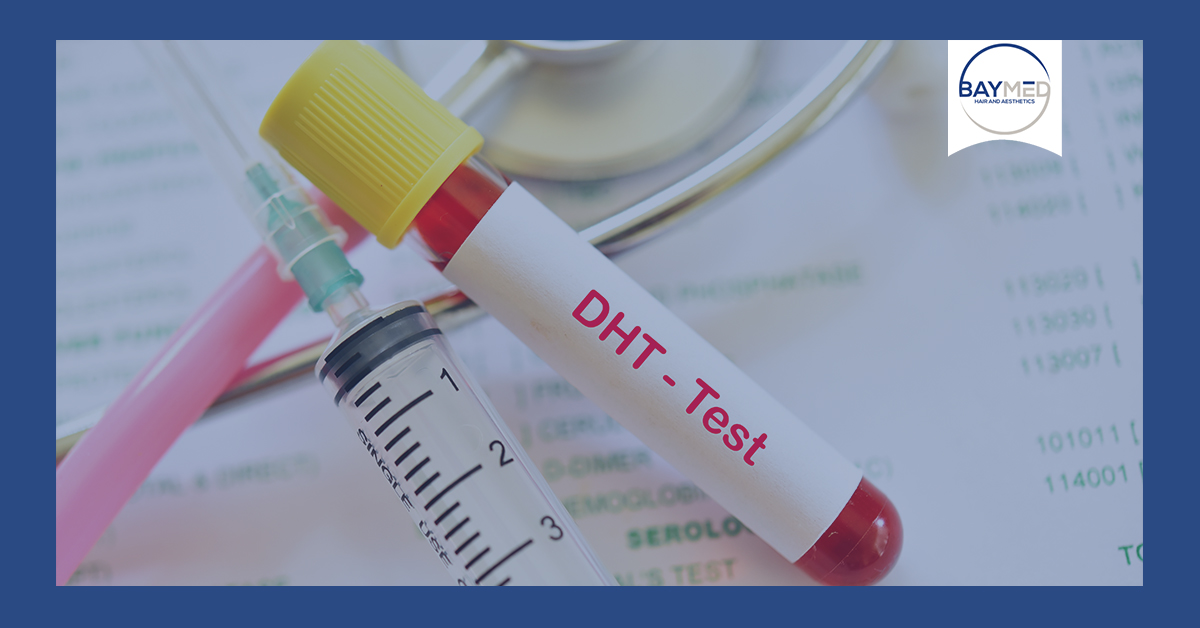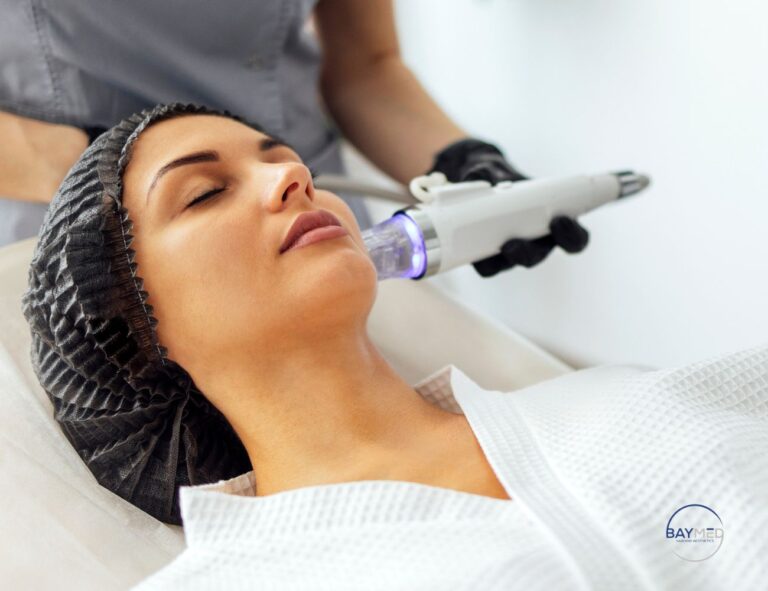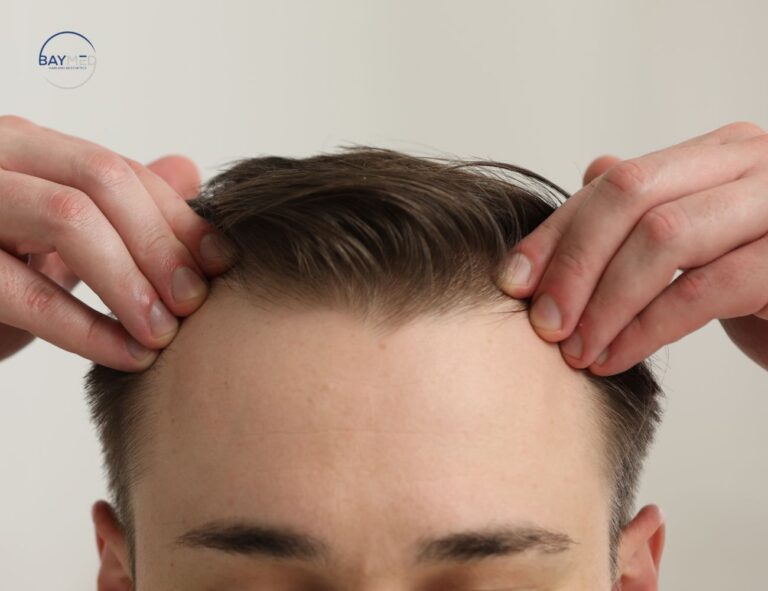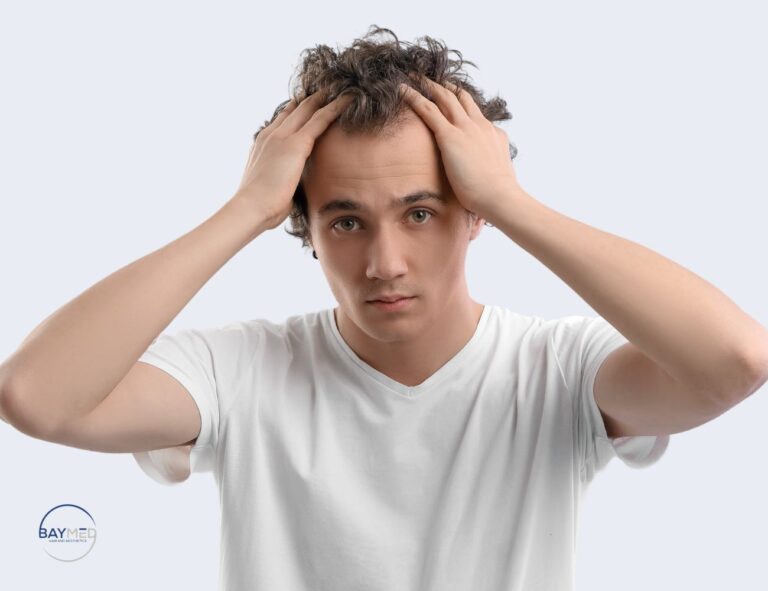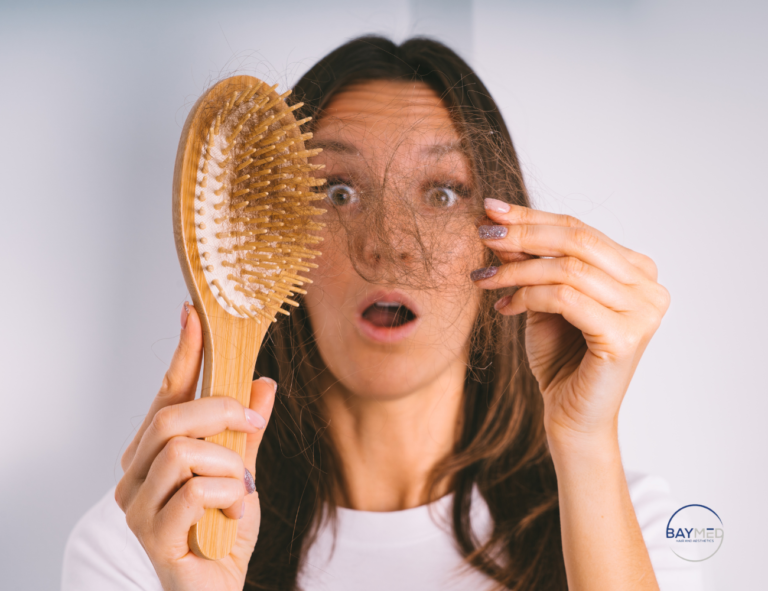Many men who are sensitive about losing their hair like to point out that hair loss is related to testosterone levels. The belief they cling to is that higher levels of testosterone lead directly to a receding hairline.
If only it were that simple.
In some cases, increasing your testosterone level can speed up the process of male or female pattern baldness, also known as androgenic alopecia. But testosterone in and of itself is not the problem.
Testosterone takes many forms. Only one – DHT – is bad for your hair. Dihydrotestosterone (DHT) is produced when testosterone in your blood combines with other chemicals in your body. And that is potentially bad for your hair, skin, and prostate.
What Does DHT Do to Your Hair?
When testosterone combines with 5-alpha reductase (5-AR) it forms DHT. The DHT is then part of your blood stream, flowing to every cell in your body. When it finds a hair follicle, it stays and shrinks the follicle.
Additionally, DHT can shorten the growth cycle of hair… making hair fall out more rapidly. Typically, hair follicles go through a pattern. They grow new hair and then rest. After it rests, the hair falls out and the cycle starts over.
The length of the hair growth cycle varies from person to person, but when you have an excess of DHT it can be shorter and shorter. Then, once the hair falls out (and because the hair follicle is shrinking), the hair might grow back thinner or not at all.
Damaged hair follicles can repair themselves but, according to the Cleveland Clinic, the process can take up to four years before you see new hair growth. And repeated injury to a hair follicle or your skin can cause scarring – resulting in permanent damage to the hair follicle.
What Causes DHT to Increase?
In a typical person, about 10 percent of the body’s testosterone is converted to DHT. It is the most potent of the androgens and best tailored to the body’s receptors. So, when it is available, the body uses it well.
During puberty in men, DHT is responsible for the development of secondary sexual characteristics including a deep voice and facial hair. But post-puberty, it isn’t something that bodies (male or female) need to continue to develop.
Some holistic medicine suggests that DHT may help keep blood sugar regulated and increase bone density. In men, it can even help combat anxiety and depression.
Unfortunately, levels that are excessive can trigger genetic balding and even cause prostate enlargement. In women, DHT is thought to be related to everything from excessive facial hair to polycystic ovarian syndrome (PCOS). And, while it can help fight anxiety and depression in men, it can cause them in women.
So, what causes your body to create more DHT? Unhealthy weight, some forms of exercise (especially sprinting), dietary supplements, and even caffeine might cause increased DHT production. There is some evidence that specific forms of pollution may also cause increased DHT productions.
BayMed Hair And Aesthetics Can Help You Address Excessive DHT
Whether it’s identifying the dietary changes you need to lower your DHT or full hair restoration surgery, BayMed Hair and Aesthetics can help you be happier with your hair. When you schedule with our hair restoration specialists, we can help you identify the causes of your hair loss and potentially stop them. If DHT is causing your hair loss, or if the trigger is somewhere else, we can help. Contact us today!

